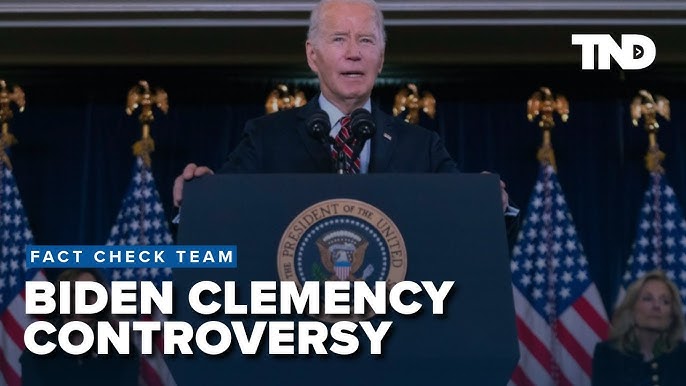Biden’s Dismissiveness towards Autopen Controversy Raises Eyebrows
Joe Biden, the past president, attempted to defend his rampant use of an autopen for signing his multiple clemency decisions during his last days in office. He allegedly argued during a recent interview that he had granted his team permission to use this automated signature reproducing device due to the ‘overflowing’ amount of pardons and commutations. In his own words, ‘the autopen is legal’, conveniently ignoring its controversial history.
Keen to rid himself of any responsibility or criticism, Biden resorted to comparing his actions with those of other presidents. With an almost dismissive tone, he stated that ‘other presidents used it, including Trump’. It is interesting to note how readily he sought refuge in his predecessor’s actions.
He went further still, to oversimplify the view held by him and his administration and suggested that the quantity of people involved somehow justified such an impersonal, mechanical approach. However, it raises serious questions about the due diligence and discretion applied in making such decisions.
We should not forget that during the last two months of his term, Biden pardoned dozens of people and commuted over 4,000 sentences. His ‘autopen’ strategy gives the impression of a man in a hurry, perhaps too eager to leave a mark before the curtains fell on his term. This picture is quite different from that painted by him, of a president diligently making every decision.
Biden’s allies would have you believe that every single clemency decision was his doing, an assertion that sharply contrasts with what current President Donald Trump and other members of his administration suggest. The key issue here isn’t about who was in control, but rather, whether such important decisions were made with the proper care and attention they required.
While he may have had a clean-cut plan for these clemency actions, onlookers are left with serious doubts. Biden claimed that he sketched out a comprehensive strategy before directing his staff on how to execute this plan ‘generically and then specifically’. The irony of this statement lies in the realization that a plan meant to target specific cases was orchestrated to be generic.
The fierce criticism Biden faced lingers on, amidst allegetions that he was incapacitated towards the end of his term. Hence, he couldn’t have approved the use of an autopen by his staff. These claims fuel the fiery debate over Biden’s fitness for office and his decision-making abilities during his tenure as president.
As denials go, Biden’s response was typical, allegedly labeling his critics as liars. Claiming that these allegations were mere distractions deflections from their own failures, Biden attempts to place the responsibility for his controversial use of the autopen elsewhere.
The glaring issue here is the way in which Biden attempted to employ a questionable strategy to make crucial decisions that affect the lives of many, and then his attempt to wash his hands off it. ‘The autopen is legal’, he insists; however, the controversy surrounding it remains.
While it might be legal, is it in the spirit of how such pardons and commutations should be handled? The question hangs heavy in the air, and Biden’s argument simply doesn’t stand up under scrutiny.
Such cases require meticulous care, a personal touch, and due attention – things you’d naturally expect from an elected leader. However, Biden appears to have decided his time would be better spent elsewhere, delegating what should have been his responsibility to an autopen and his staff.
While it’s true that previous presidents have used autopens, they did so sparingly and with discretion – it was never their primary mode of executing pivotal decisions. In trying to justify his actions by bringing in Trump into the equation, Biden attempts to lessen the magnitude of his own controversial decision.
The significance of Biden’s actions is thus undermined, not underscored. With his decision to use an autopen for such monumental decisions, Biden birthed an unwelcome precedent — that there exists a workaround for personal accountability.
Biden’s denial of inability – magnified in his alleged name-calling – betrays more of his insecurity than any supposed integrity. Instead of confronting the core issues, he seemingly circles around them and chooses to focus on assigning blame, rather than accepting any.
The final impression here is one of a former president more focused on devaluing accusations than critically examining his own actions. The controversy surrounding Biden’s autopen use continues to add fuel to the exceptional critique of his overall strategy, leaving us with more questions than answers.



